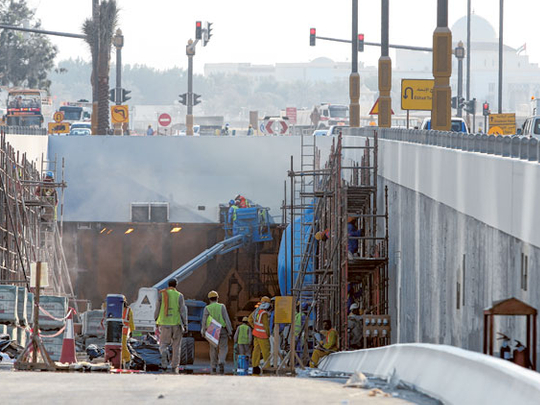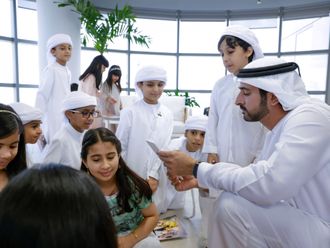
Abu Dhabi: The UAE’s Dh44.6 billion federal budget that focuses on social welfare, is also targeted to improve investment climate and its competitiveness, a top official said.
Younus Haji Al Khouri, Undersecretary of the Ministry of Finance, told Gulf News that the UAE has strengthened focus on social welfare, investment climate and competitiveness, in recent years.
“In line with UAE plan 2020, the government started to focus on the social development projects and to improve the country’s infrastructure to attract investors. There are mega public investments in power, water, roads and dams to improve the welfare of citizens and expats,” Al Khouri said in his reaction to the UAE federal budget announced on Tuesday.
“Social development accounts for 51 per cent of spending, education comes second with 22 per cent and water and electricity for 12 per cent of the budget,” said Al Khouri.
“The 85 per cent of the budget is targeted to welfare, social and infrastructural development. This is an indicator of the government’s strong focus towards safeguarding a comfortable life for the Emiratis and expatriates living in the UAE and to upgrade infrastructure,” Al Khouri said.
The budget is part of a three-year government financial plan (2011-2013) with total spending amounting to Dh133 billion to carry out the government’s strategic plans.
Dr. Waddah Taha, chief analyst and economist at Zarouni Group, told Gulf News that the UAE has achieved solid economic growth since the financial crisis in 2008, adding that the 2013 budget proposes an increase in spending with no deficit.
“Though the federal budget only accounts for 11 per cent of the country’s fiscal spending, with each emirate having its own individual budget, the GNP of the UAE is expected to reach Dh1.38 trillion ($375.9 billion) in 2012, up from Dh1.25 trillion in 2011,” said Dr. Taha.
Taha said that the budget does not include oil revenues and focuses mainly on administrative spending, public services, and wages for federal employees.
Dr. Numan Ashour, a UAE-based economist, told Gulf News, “The 2013 budget has increased by about Dh2 billion, up by 4 per cent. And the expected deficit in the budget was Dh600-Dh800 million which were offset due to confidence in the UAE economy and market,” remarked Dr. Ashour.
“In 2012 budget, the expected deficit was estimated to reach Dh400 million. The deficit was offset by the large financial transfers and deposits from other countries in the UAE banks,” clarified Dr Ashour.
He said that due to the political turmoil in some countries of the region, many investors deposited their money in the UAE banks as the country is a safe haven for them and for their investments.
“More than $137 billion has been transferred to UAE banks from the other countries in the region since the beginning of the Arab Spring. Amongst the positive indicators of the UAE economy is the number of new foreign companies which invested in Dubai alone in 2011 which rose to 15,000,” added Dr. Ashour.
UAE’s business community also hailed the budget. “The decision to prioritise the budget for health, education and social benefits is a great step in building and developing a concrete foundation for the country. Construction and infrastructure also has a lion’s share in the budget, underlying steady growth for the sector. I am confident that the country will witness a positive growth and strategic progression in the years to come,” said Rizwan Sajan, Founder & Chairman of Danube Group.












